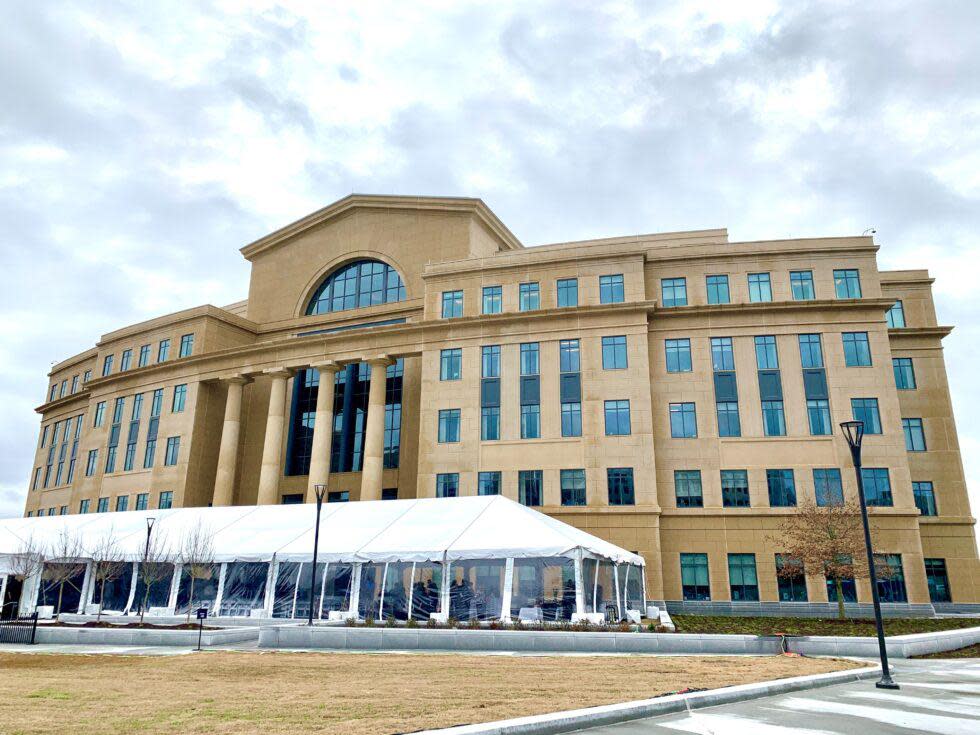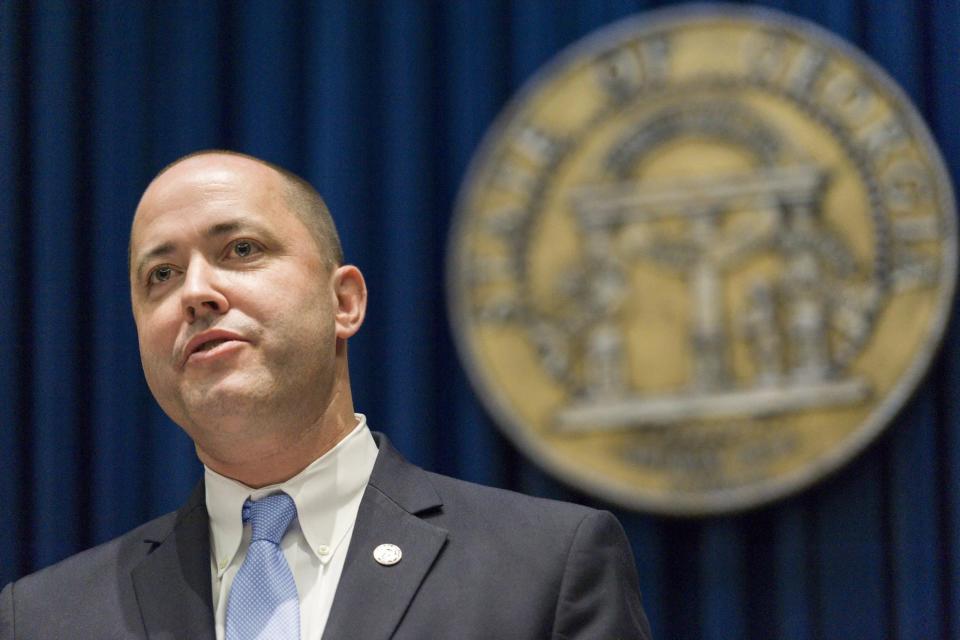As South Carolina shows, abortion battles are moving to state courts

Last spring, the U.S. Supreme Court settled the question of federal abortion law in Dobbs v. Jackson, overturning the federal right to an abortion. Rather than settling the issue of abortion, however, the ruling has kicked off a series of lawsuits throughout the country.
The South Carolina Supreme Court this month found that the state's abortion law banning abortion after six weeks violated the state constitution's right to privacy. The Georgia Supreme Court will hear oral arguments on a similar law in March, after a lower court ruled it was invalid. Two days before the South Carolina decision, the Food and Drug Administration passed a law allowing more pharmacies to provide abortion pills.
"There is a lot of stuff that's going to be unveiled ... ," said Fabiola Carrión, director of reproductive and sexual health with the National Health Law program, a group that supports expanded abortion access. "We're in for the long fight, and it's gonna be really confusing, and we're gonna have to figure out legal questions that we haven't in the past."
Abortion ban:State Court declines to block Georgia abortion ban in new challenge
Other lawsuits:New lawsuit filed to block Georgia abortion law in state court after federal challenge lost
State by state litigation
States vary widely in their protections for abortion, and have for years. According to the Center for Reproductive Rights, states like Kansas, Montana and Alaska have strong state constitutional protections for abortion access, under legal theories of personal autonomy, a right to privacy or equal treatment. Other states have come to the opposite conclusion — Idaho's State Supreme Court ruled that the right to privacy does not cover abortion, said Fred Smith, professor of law at Emory University.
South Carolina, however, is one of the first states to rule on access to abortion following Dobbs.
"It hasn't been a year since the Dobbs case came into effect," said Carrión. "Litigation takes quite a while. We won't know how common this will be."
Other state rulings might be cited in Georgia
In Georgia, the current case before the state Supreme Court was brought by the ACLU of Georgia on behalf of several plaintiffs, including the lead plaintiff, SisterSong Women of Color Reproductive Justice Collective, shortly after a federal court ruled the law no longer violated federal law. Georgia's abortion law is being defended by the office of the state Attorney General.
How much the Georgia Supreme Court's decision will be swayed by the rulings in other states remains to be seen. Smith thinks the briefs filed by the parties will be the most persuasive, but said that the court can consider the rulings of courts in other states as well, if they find them compelling.
"I wouldn't be surprised at all if the Idaho opinion is at some point mentioned by the Georgia Solicitor General, and I wouldn't be surprised at all if the South Carolina opinion, especially given how close it is to us, is mentioned by the plaintiffs," Smith said.

Kara Richardson, a spokesperson for Georgia Attorney General Chris Carr, said that the office was pleased that the Supreme Court re-instated the law pending a final ruling, but declined to comment further, citing the ongoing litigation. SisterSong did not return a request for comment.
Georgia's abortion law was overturned by Fulton County Judge Robert C.I. McBurney, who ruled that a law that was unconstitutional when it was passed remains unconstitutional.
"If the courts have spoken, clearly and directly, as to what the law is, as to what is and is not constitutional, legislatures and legislators are not at liberty to pass laws contrary to such pronouncements," McBurney wrote in his decision.
But the question of privacy might still come up, regardless of how the Supreme Court rules.
"The Georgia Supreme Court has long recognized the right to privacy going back to the early 1900s," Smith said. "But there's not the same kind of emphatic statements in prior opinions about this specific issue" as in other states.
If the Supreme Court agrees with McBurney's ruling, then the state legislature could pass a new law, legal from the start under Dobbs. In that case, the question of a Georgia right to privacy protecting access to abortion might be considered again by the courts, Smith said. If the Supreme Court disagrees with his ruling, however, McBurney might be able to rule separately on the privacy issue.
The next area of litigation
The Supreme Court has made it clear that under the constitution there is no recognized right to access abortion, but that does not mean an end to litigation over the state by state patchwork of abortion laws in federal court. The possibility of the FDA approving telehealth appointments and abortion pills by mail is one area where state and federal law may clash.
This issue of conflicting federal and state law — with the FDA but also other agencies, like the Department of Health and Human Services — is an area Carrión will be following closely, she said.
Within state law, there may also be places where aspects of abortion law are challenged even if the overall law stands, said Smith. He also thinks that states that do have some kind of legal right to access abortion will face litigation, too, from abortion opponents.
"The litigation didn't stop at Roe, right?" Smith said. "There was a concerted decade long legal strategy to dismantle Roe."
This article originally appeared on Augusta Chronicle: Abortion litigation is now before state courts in Georgia, elsewhere

